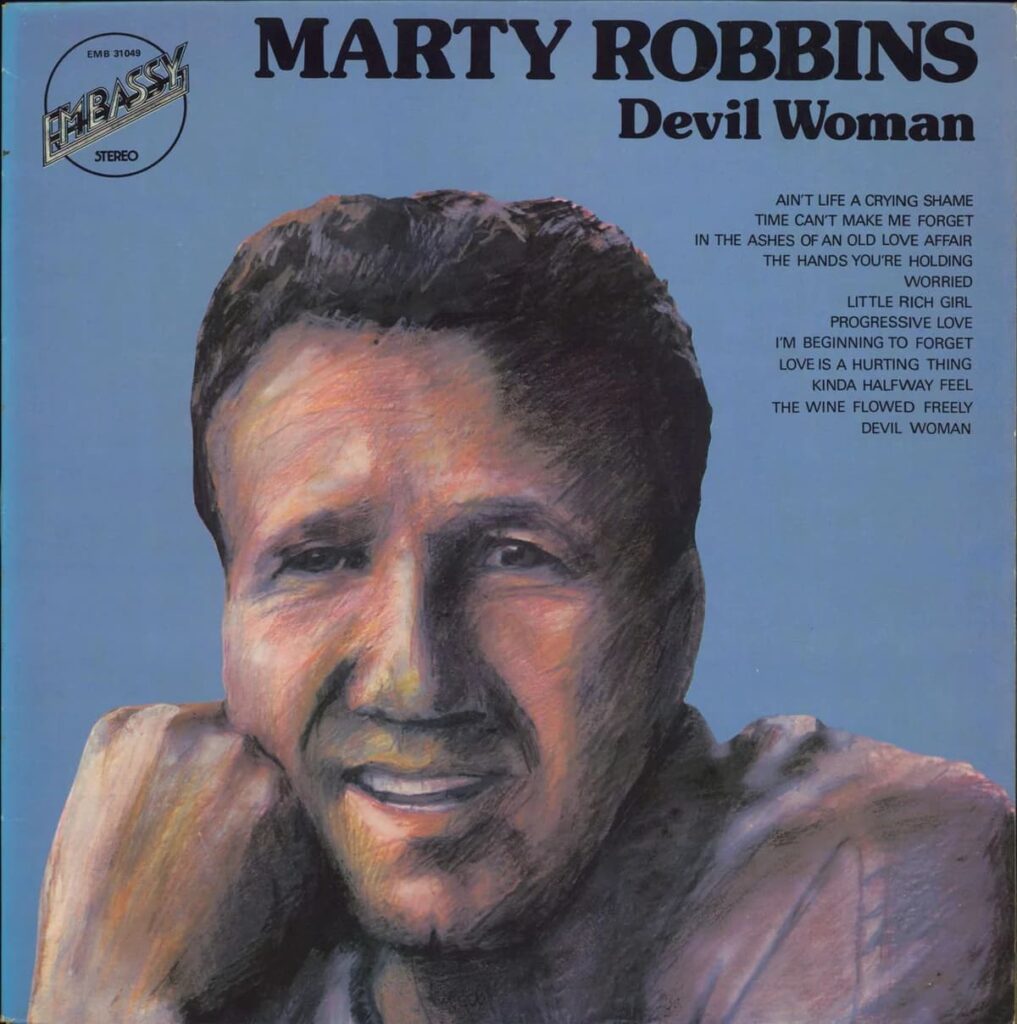
“Devil Woman”: A Timeless Warning Against a Charismatic Heartbreaker
There are songs that simply etch themselves into the very fabric of our memories, and for many of us who grew up with the golden age of country music, Marty Robbins’ “Devil Woman” is undeniably one of them. It’s a tune that carries with it a certain mystique, a cautionary tale spun with that inimitable voice that could convey both tenderness and palpable unease. Released in June 1962, this classic wasn’t just another hit for Robbins; it was his seventh single to reach the coveted number one spot on the Billboard Hot Country Songs chart, where it held court for a remarkable eight weeks. Its appeal wasn’t confined to country circles, either, as it successfully crossed over, peaking at an impressive number 16 on the Billboard Hot 100 pop chart. Internationally, it also made its mark, notably reaching number 5 on the UK Singles Chart, making it one of Marty Robbins’ most successful singles overseas. It was the title track of his album, also named “Devil Woman,” which further cemented its place in his storied discography.
The story behind “Devil Woman” is as compelling as the song itself. Penned by Marty Robbins himself, it delves into a narrative that’s as old as time: the allure and subsequent heartbreak delivered by a captivating, yet ultimately destructive, individual. Robbins had a remarkable gift for storytelling through song, whether it was the epic Western ballads like “El Paso” or the more intimate, emotionally charged narratives like this one. While specific anecdotes about its creation are rare, the song speaks to a universal experience of being drawn in by someone whose charm masks a darker, manipulative nature. It’s a narrative that resonates deeply, perhaps because many of us have, at some point, encountered such a figure in our own lives, or at least witnessed their impact on others.
At its heart, “Devil Woman” is a vivid warning, a sonic painting of a siren-like figure who ensnares unsuspecting hearts. The lyrics describe a woman whose beauty and charisma are undeniable, but beneath the surface lies a “devil” intent on causing pain. She’s a master of deception, using her charm to manipulate and leave a trail of broken spirits in her wake. The song warns the listener to “turn and run” from her, to recognize the danger before it’s too late. It’s not simply a lament of heartbreak, but an active admonition, urging caution and self-preservation. This theme of a dangerous, enchanting woman was not entirely new in music, but Robbins’ delivery gave it a unique country sincerity, making the warning feel deeply personal and urgent.
Marty Robbins’ vocal performance on “Devil Woman” is nothing short of masterful. His voice, typically smooth and melodious, takes on a subtly unsettling quality, perfectly conveying the trepidation and fascination the narrator feels. The slight quiver in his voice, the measured pacing of the words, all contribute to the song’s haunting atmosphere. The instrumentation, too, is understated but effective, with just enough twang and a hint of melodrama to amplify the narrative without overwhelming it. It’s this delicate balance that allows the song to linger in the mind, a tune you can’t quite shake, much like the “devil woman” herself.
For those of us who remember sitting by the radio, eagerly awaiting the next Marty Robbins tune, “Devil Woman” brings back a flood of memories. It was a time when songs told complete stories, painting vivid pictures with words and melodies. It reminds us of Friday nights, perhaps, or long drives through the countryside, with Robbins’ voice filling the air, transporting us to other places and other lives. This song, in particular, often sparked conversations about cautionary tales, about learning to discern character, and about the sometimes painful lessons of love and attraction. It’s a piece of music that transcends its time and genre, remaining a powerful and relevant commentary on human nature. Even now, decades later, the message of “Devil Woman” continues to resonate, a timeless reminder that not all beauty is benign, and some charms come with a very steep price.